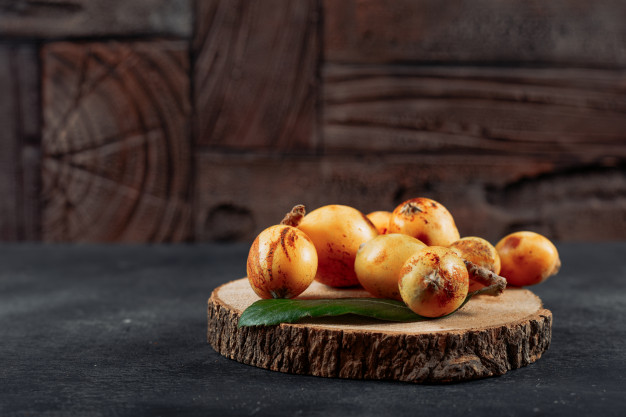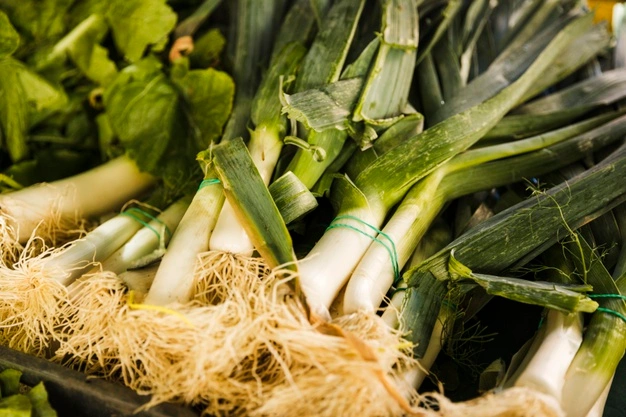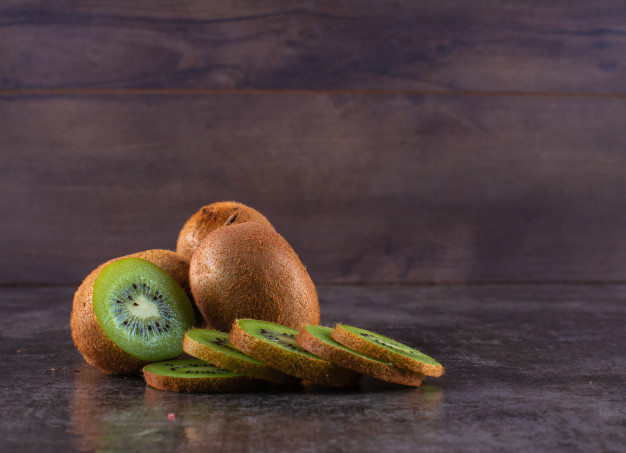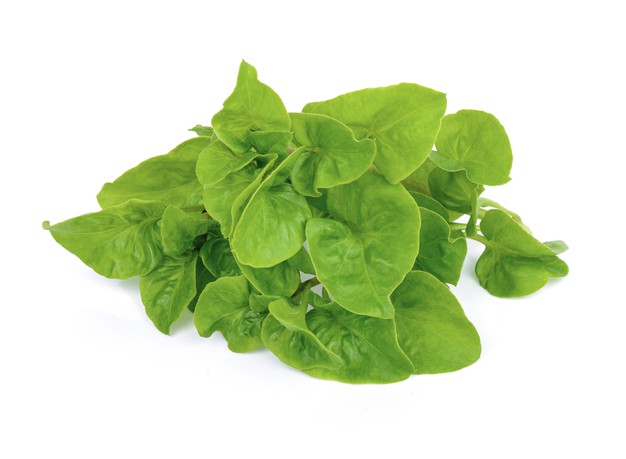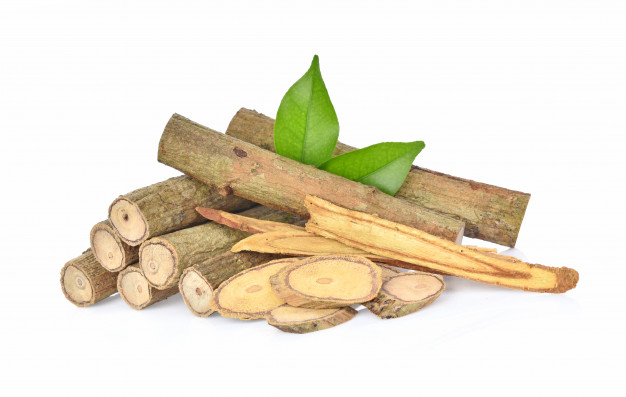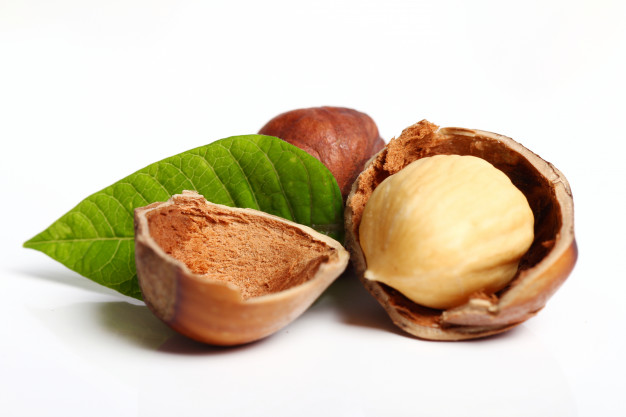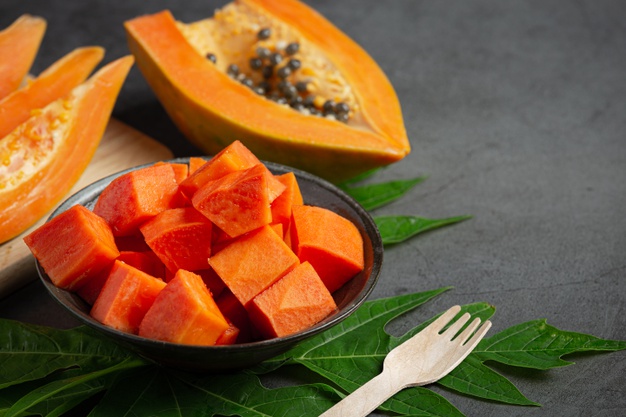Loquat fruit is a nutritious as well as delicious fruit obtained from loquat tree. It has been used for centuries for various therapeutic and culinary purposes.
Nutritional profile
- It contains lesser amount of carbohydrates but it is consisting of adequate fibres
- It contains too some extent of proteins as well
- It contains negligible amount of fat
- It is considered as low calorie food as it is not associated with providing too much energy on its oxidation
- It contains several vitamins and especially rich in Vitamin A, Vitamin C, Vitamin B1, B2, B6 and B9
- It is loaded with numerous trace elements as well, which include manganese, magnesium, calcium, phosphorus, iron and copper
- It contains various biologically active components like flavonoids, triterpenoids, phenolic compounds and carotenoids that exhibit anti-inflammatory, anti-carcinogenic, antioxidant, antitumor, hypoglycemic, antiviral, anti-mutagenic, cytotoxic and hypolipidemic activity
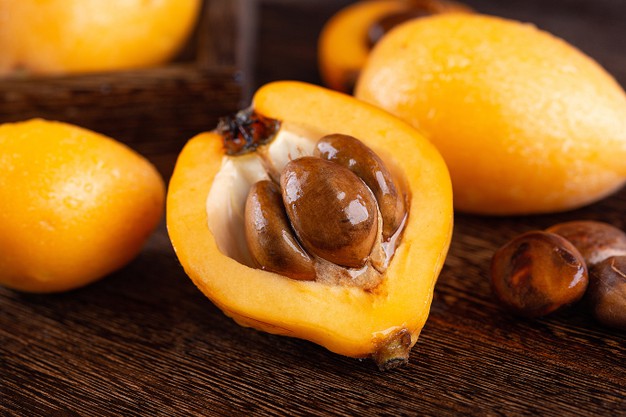
Health benefits
Role on respiratory health
- Loquat acts as an important expectorant thus its consumption or gargle with loquat is extremely beneficial for discharging mucus through air passage
- It plays significant role in loosening up phlegm and mucous
- It helps to prevent cough as well
- It is very effective for protecting the respiratory tract from bacterial infestation and it also helps to calm the entire respiratory system, which ultimately helps to lessen the risk of developing respiratory disorders

Role on immunity
- It acts as an important immune booster
- Its Vitamin C content is considered as one of the most important nutrients that help to improve the functionality of immune cells
- Carotenoid component of loquat is also responsible for enhancing immunological responses of the body
- It is associated with increasing the production of white blood cells that help to help the body to fight against pathogens
- It is very much useful for preventing normal cold and flu as well
Role on digestive health
- Individual who suffer from indigestion should try loquat
- Loquat contains pectin, which is a dietary fibre and acknowledged to be an immense digestive aid
- Its fibre content also play imperative role in improving bowel movement as well as colonic motility thus its consumption is thought to be very much helpful for promoting regularity and colonic health
- It also helps to protect the gastrointestinal tract from inflammatory damages
- It is extremely helpful for decreasing the prevalence of irritable bowel syndrome, inflammatory bowel disease, diarrhoea, constipation and stomach issues
Role on nervous system

- Loquat has a direct relation with nervous system. It has seen that its consumption is very much useful for enhancing brain’s activity
- It helps to reduce the prevalence of dementia
- It is also associated with delaying the progression of Alzheimer’s disease
- Its antioxidant activities play significant role in combating the harmful consequences of oxidative stress in body, which ultimately help an individual to obtain a sharp and clear mind
Role on skeletal health
- It is better to consume loquat for maintaining a healthy skeletal system
- Its vitamin and mineral components are responsible for preventing the loss of bone mineral density
- Middle aged individual especially post menopausal women should include it in their diet for maintaining healthy bone mass and density
Role on circulation
- It is considered as an important source of iron, which is essentially required by the body for stimulating the production of hemoglobin as well as healthy RBC that help to improve blood circulation
- Proper blood circulation is directly linked with supplying all essential substances to the body thus improves the functionality of each organs
- Iron of loquat also helps to speed the metabolic process and promotes cellular respiration too
- Its iron content makes it an effective preventive measure for anemia as well

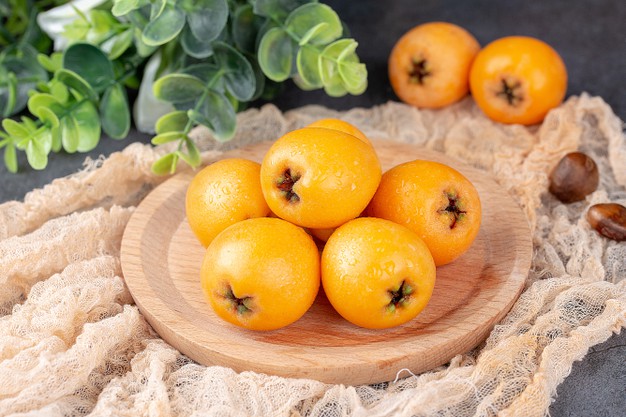
Role on vision
- Vitamin A of loquat plays important role in promoting eye health
- It also helps to improve vision by protecting the retina from damages
- It helps to prevent the cornea from dryness
- It is better to consume loquat for avoiding the prevalence of Vitamin A deficiency, which is responsible for developing various eye disorders. Consumption of loquat is extremely effective for decreasing the prevalence of cataract, glaucoma, superior limbic keratoconjunctivitis, macular degeneration, bitot’s spot, corneal ulcer and keratomalacia
Antioxidant activity
- It is packed with antioxidants that help to decrease the concentration of free radicals and reactive oxygen species in body
- It helps to decrease oxidative stress as well, which helps to lessen the risk of developing chronic diseases
- It also helps to protect cell as well as cellular materials like DNA, RNA, proteins and lipids from oxidative damages thus helps to promote their functionality
Therapeutic uses
Role on regulating cholesterol level
- Its fibre content is responsible for decreasing the level of triglyceride, LDL and VLDL in body
- Its cholesterol lowering effect makes it an important therapeutic substance for preventing metabolic syndrome
- It has seen that individual who consume loquat has improved ratio of HDL and LDL, which ultimately helps an individual to keep a healthy lipid profile

Hypoglycemic effect
- Loquat leaf extract has strong anti-diabetic effect
- It helps to decrease the concentration of free sugar in blood and also enhance insulin sensitivity, both of which play vital role in decreasing the prevalence of hyperglycemia
- It has seen that consumption of loquat is very effective for improving the symptoms of type 1 as well as type2 diabetes mellitus
Role on weight management
- Its low calorie value makes it an effective remedial action for preventing obesity
- Its fibre content is also responsible for reducing hunger by providing a feeling of satiety thus its consumption is thought to be very effective for facilitating weight reduction as it helps to satisfy hunger with few calories
- Its hypolipidemic effect is considered as another important feature for preventing obesity
Role on preventing cancers
- Extracts of leaves, seeds and skin of loquat have been extensively used as an effective anti-carcinogenic substance
- Phenolic compounds as well as carotenoid component of loquat are considered as the principal components that exert anti-carcinogenic activity
- Its chlorogenic acid component plays imperative role in hindering the growth of tumor cells in body
- It is also associated with suppressing the growth of malignant cells and prevents their metastasis
- Consumption of loquat significantly reduces the prevalence of bladder cancer

Anti-inflammatory effects
- It is widely used for preventing chronic inflammatory diseases
- It helps to increase the concentration of interleukin-10, which is recognized as an anti-inflammatory protein that plays important role in decreasing the level of two important inflammatory proteins in body, named tumor necrosis factor alpha and interleukin-6 that ultimately help in preventing inflammation
- It helps to prevent pain and swelling as well
Cardio protective effect
- Its micronutrients and antioxidant compounds are responsible for promoting cardiac health
- Magnesium and potassium contents help to maintain proper heart beat and blood pressure
- It helps to improve the health and functionality of artery by preventing plaque formation
- It significantly decreases the prevalence of strokes, coronary artery disease and myocardial infraction
Culinary uses
- Whole loquat fruit can be consumed or peel of the skin can also be consumed
- It can also be consumed in various forms like extract or snack or tea
-
It can be used for preparing jam, smoothie and desserts


Source:
Gupta, P., Priyanka, K. and Sivanand, C., 2020. Loquat. In Antioxidants in Fruits: Properties and Health Benefits (pp. 577-592). Springer, Singapore.
Sagar, N.A., Pareek, S., Bhardwaj, R. and Vyas, N., 2020. Bioactive Compounds of Loquat (Eriobotrya Japonica (Thunb.) L.). Bioactive Compounds in Underutilized Fruits and Nuts, pp.123-143.
Selvamuthukumaran, M., Prabhakar, P.K. and Ghanghas, N., 2020. Loquat (Chinese Plums): Medicinal and Therapeutic Values and Their Processed Products. In Asian Berries (pp. 205-220). CRC Press.
Sharpe, R.H., 2010. Loquat: botany and horticulture. Horticult Rev, 23, p.233.
Tan, H., Sonam, T. and Shimizu, K., 2017. The potential of triterpenoids from loquat leaves (Eriobotrya japonica) for prevention and treatment of skin disorder. International journal of molecular sciences, 18(5), p.1030.
Tian, S., Qin, G. and Li, B., 2011. Loquat (Eriobotrya japonica L.). In Postharvest biology and technology of tropical and subtropical fruits (pp. 424-444e). Woodhead Publishing.
Xu, H.X. and Chen, J.W., 2011. Commercial quality, major bioactive compound content and antioxidant capacity of 12 cultivars of loquat (Eriobotrya japonica Lindl.) fruits. Journal of the Science of Food and Agriculture, 91(6), pp.1057-1063.
